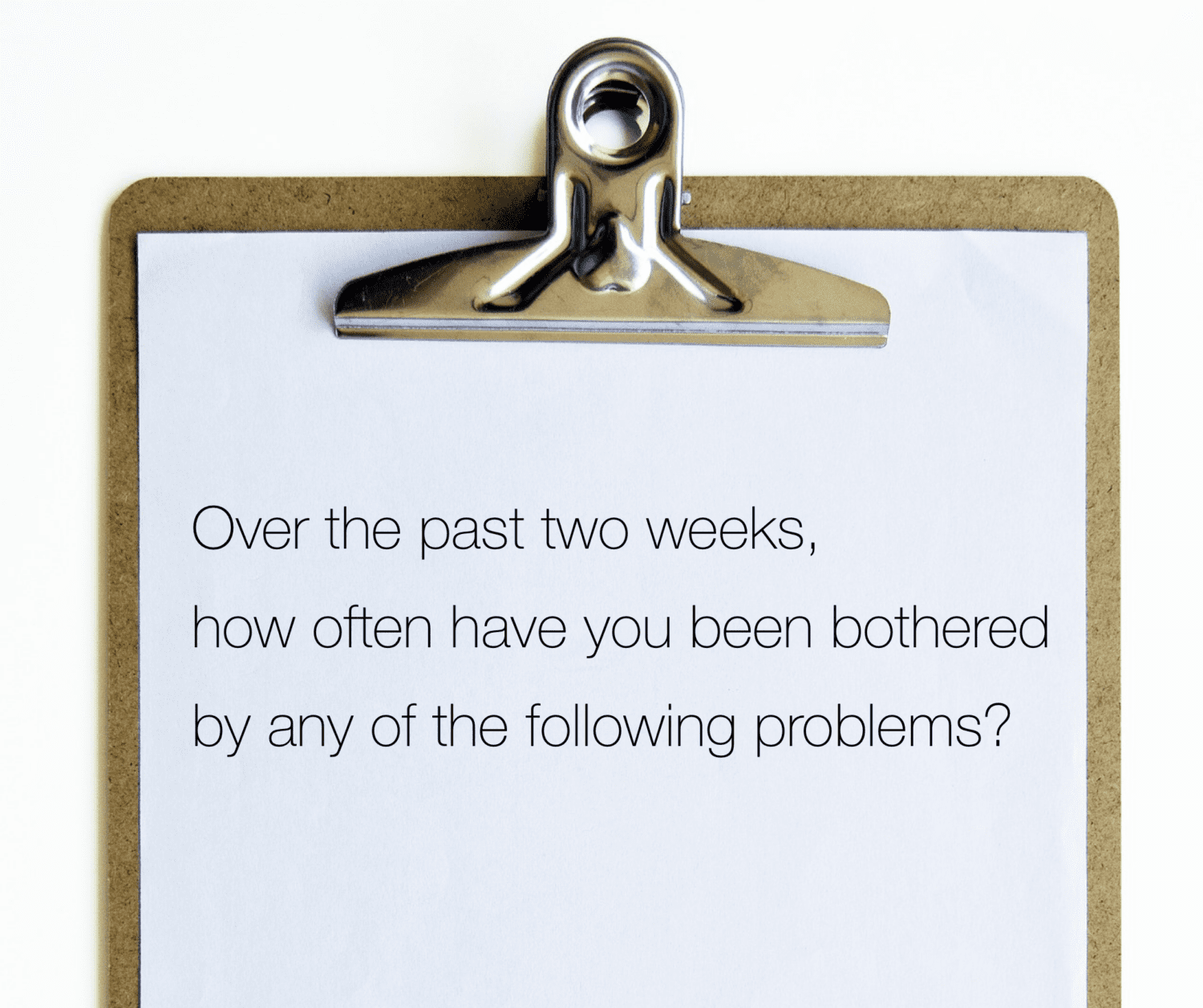Screening Tools
Have you ever gone to your doctor for a routine physical and while you waited you were asked to complete some surveys? Did these surveys ever containing sensitive questions?
If this has happened to you, you most likely completed a screening questionnaire. A screening tool, such as the PHQ-9 (or patient health questionnaire) asks a series of questions that have been shown in the research to help identify when an individual might be experiencing symptoms of a health condition, like depression or anxiety. Then at the end all the responses are totaled for a final score, which helps interpret the symptoms. 
It’s important to know that while screening is very useful, it’s only a starting point. These tools can help initiate a conversation with your doctor or with someone you trust. Screening tools cannot be used to make a diagnosis, but rather let your doctor know to ask additional questions. Only by talking to a professional, and usually more than just one time, can you figure out if you have a mental health condition.
Also, the results from a screening tool will only be helpful if you answer the questions honestly. Read through the questionnaire slowly and pay special attention to the specified time period to which the questions refer. Sometimes it can be difficult to talk to your doctor about some of these signs and symptoms, perhaps because of the stigma about mental illnesses. Therefore, it is helpful to remember that many of your symptoms can be treated, especially when identified early. Mental illnesses have specific signs and symptoms, and when left alone, symptoms can become more serious. Mental health checkups are just as important as a physical checkup.
You can also screen yourself by taking a screening tool online (click here for the screening tool in Spanish). This can be a great starting point for you to assess and educate yourself about the symptoms you are experiencing. Then you can discuss any concerns with a professional, like your primary care physician or school counselor.
Lastly, we often only go to the doctor when we are not physically feeling our best. For example, if we are tired (or have a lack of energy) or have changes in our diet, or our bodies ache, we are more likely to go to the doctor. We do not necessarily seek out an appointment with our physician for our mental health. However, some of the physical symptoms that make us schedule a doctor’s visit, can be symptoms of depression or anxiety (or another condition). For more information, please talk to a professional about screening tools.
Have you ever taken a screening questionnaire at your doctor’s office or on your own? If you’re comfortable, we would love to hear your experience or if you have any questions about the subject’s of today’s post. Leave us a comment below!




Recent Comments